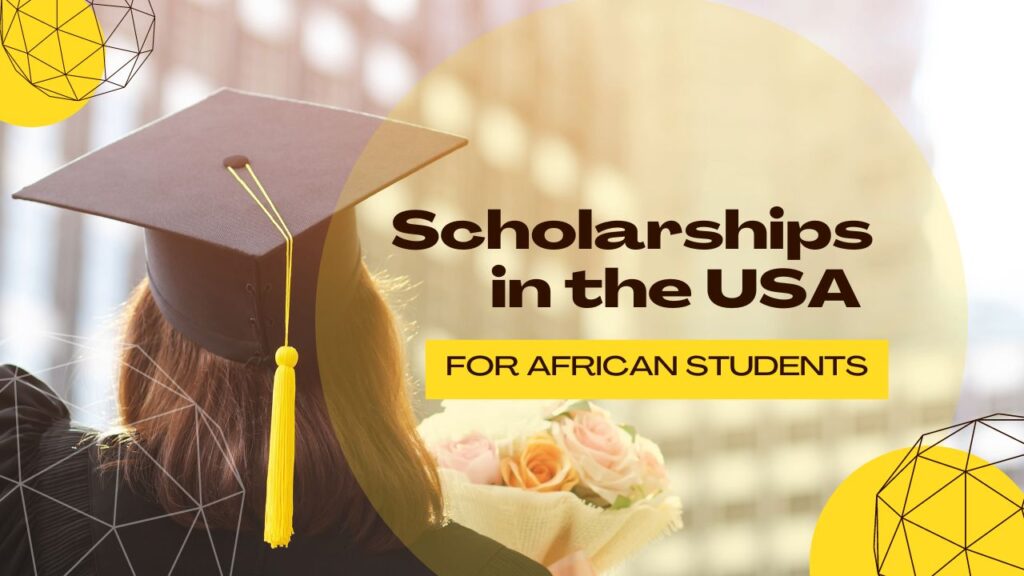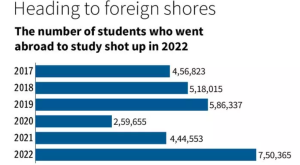12 Scholarships for African Students to Study Overseas – 12 Scholarships for African Students to Study Overseas unlocks doors to a brighter future for aspiring scholars. This comprehensive guide delves into the world of opportunities available to African students seeking international education. From funding details to application strategies, we equip you with the knowledge to navigate the scholarship landscape and achieve your academic aspirations.
This guide unpacks the crucial aspects of securing these valuable scholarships, providing insights into eligibility criteria, application procedures, and the overall benefits of pursuing higher education abroad. We also highlight the importance of international education for African students, examining its impact on their personal and professional growth, fostering intercultural understanding, and empowering them to contribute to their home countries’ development.
Introduction to Scholarships
Scholarships for African students studying abroad are vital for fostering academic excellence and empowering future leaders. These opportunities provide financial support, enabling students to pursue higher education, often in prestigious institutions worldwide. Access to international education is critical for African students to gain global perspectives, acquire advanced skills, and contribute to their home countries upon graduation. This translates to stronger economies and enhanced societal development.These scholarships are instrumental in expanding educational horizons and career opportunities for African students.
They bridge the financial gap that often prevents talented individuals from pursuing their dreams of higher education, especially in competitive international programs. The resulting impact on individuals and their communities is significant, driving innovation and progress in various sectors.
Key Characteristics of Scholarships
Scholarships vary greatly in their specifics. Understanding these characteristics is crucial for prospective applicants. This table provides a general overview of the key aspects to consider.
| Funding Amount | Duration | Eligibility Criteria | Application Process |
|---|---|---|---|
| Scholarships can range from a few thousand dollars to full tuition coverage, depending on the program and sponsor. Some may also include stipends for living expenses. | The duration of scholarships varies significantly. Some are for a single academic year, while others cover the entire duration of a degree program. | Eligibility requirements typically involve academic performance (GPA), relevant experience, personal essays, and recommendation letters. Specific criteria are often detailed in the scholarship’s guidelines. Demonstrating financial need is also frequently a factor. | Application processes typically involve online submission of documents, essays, transcripts, and other required materials. Deadlines vary, so careful attention to dates is essential. |
Funding Sources and Types
A multitude of organizations and institutions offer scholarships to African students. These sources range from governmental bodies and international organizations to private foundations and academic institutions. Each scholarship often has a distinct focus, reflecting the sponsor’s interests and goals.
- Governmental grants: These are frequently offered by countries with strong educational partnerships or development agendas for Africa. Examples include scholarships from the German Academic Exchange Service (DAAD) or the British Council.
- International organizations: Organizations such as the United Nations Educational, Scientific and Cultural Organization (UNESCO) and the World Bank often provide scholarships that promote international cooperation and development. These organizations often focus on specific fields, such as sustainable development or public health.
- Private foundations: Foundations like the Bill & Melinda Gates Foundation or the MasterCard Foundation may support scholarships tailored to specific sectors or regions within Africa.
- Academic institutions: Many universities globally offer scholarships to outstanding students, frequently with a focus on research opportunities or specific academic disciplines. These scholarships are often merit-based, reflecting the university’s need for researchers and experts in various fields.
Importance of International Education
International education provides a unique opportunity for African students to broaden their perspectives and enhance their skills in a global context. Exposure to diverse cultures, academic environments, and perspectives fosters critical thinking, adaptability, and cross-cultural understanding. These skills are highly valued in today’s interconnected world.
- Expanding knowledge base: International experiences expose students to advanced knowledge, cutting-edge research, and diverse academic approaches that may not be available in their home countries.
- Developing global networks: Interaction with students from various backgrounds creates valuable professional networks, fostering collaboration and innovation. These networks often span continents and contribute to global collaborations.
- Improving career prospects: International degrees and experiences can enhance career prospects and open doors to opportunities in multinational companies, international organizations, and academia.
Identifying Scholarship Providers
Navigating the labyrinth of scholarships can feel overwhelming, especially for international students. This section will illuminate the path, providing insights into reputable organizations and institutions offering support to African students pursuing higher education abroad. We will analyze various scholarship programs, comparing and contrasting their nuances to aid in informed decision-making.
Reputable Scholarship Providers
Numerous organizations and institutions worldwide recognize the value of supporting African students. These entities, ranging from governmental bodies to private foundations, demonstrate a commitment to education and empowerment. Identifying reliable sources for these opportunities is crucial to avoid scams and ensure the integrity of the scholarship process.



